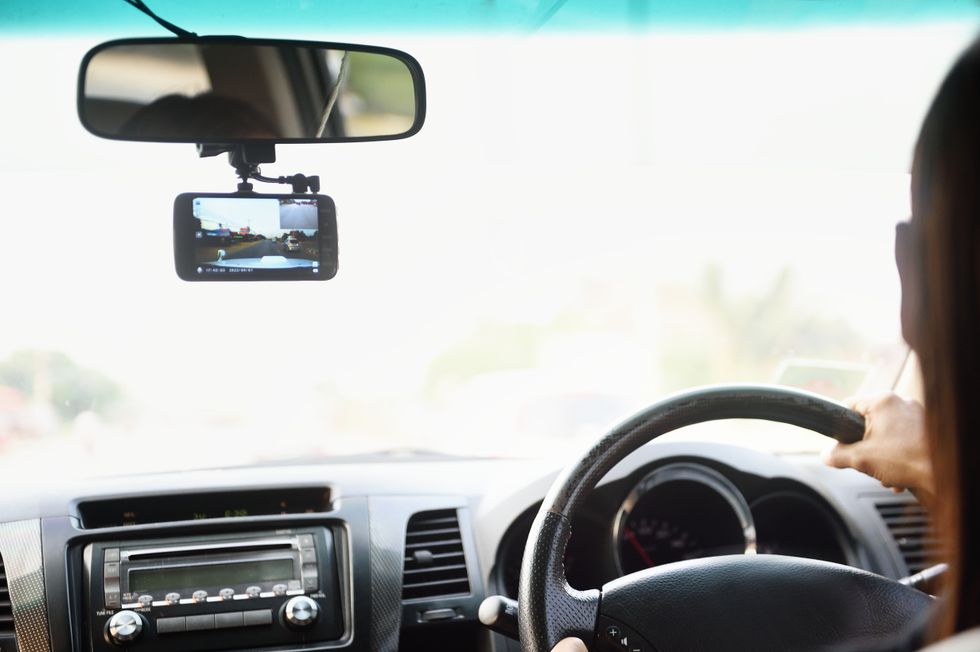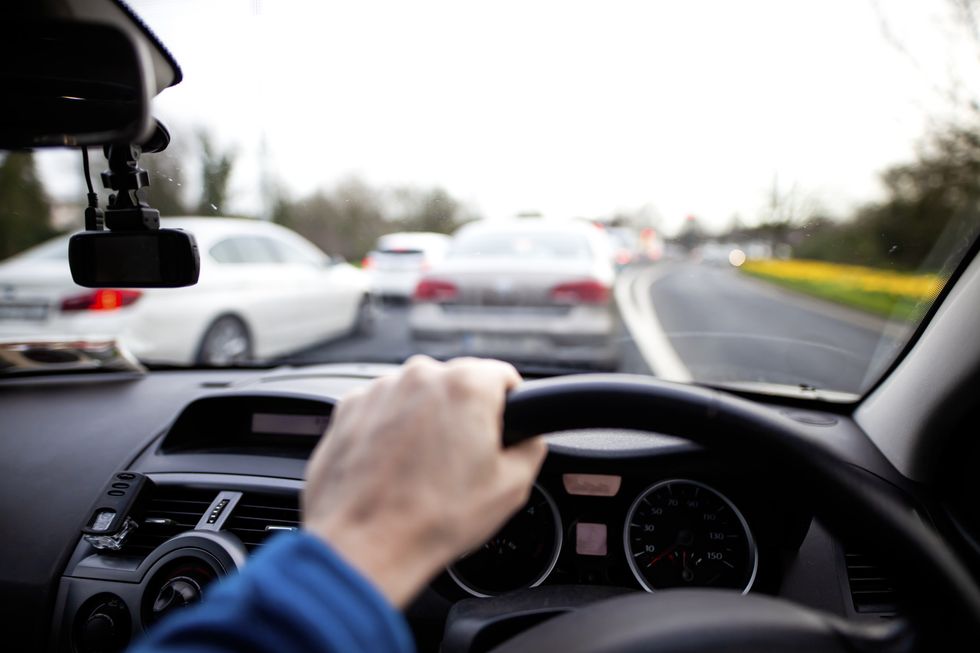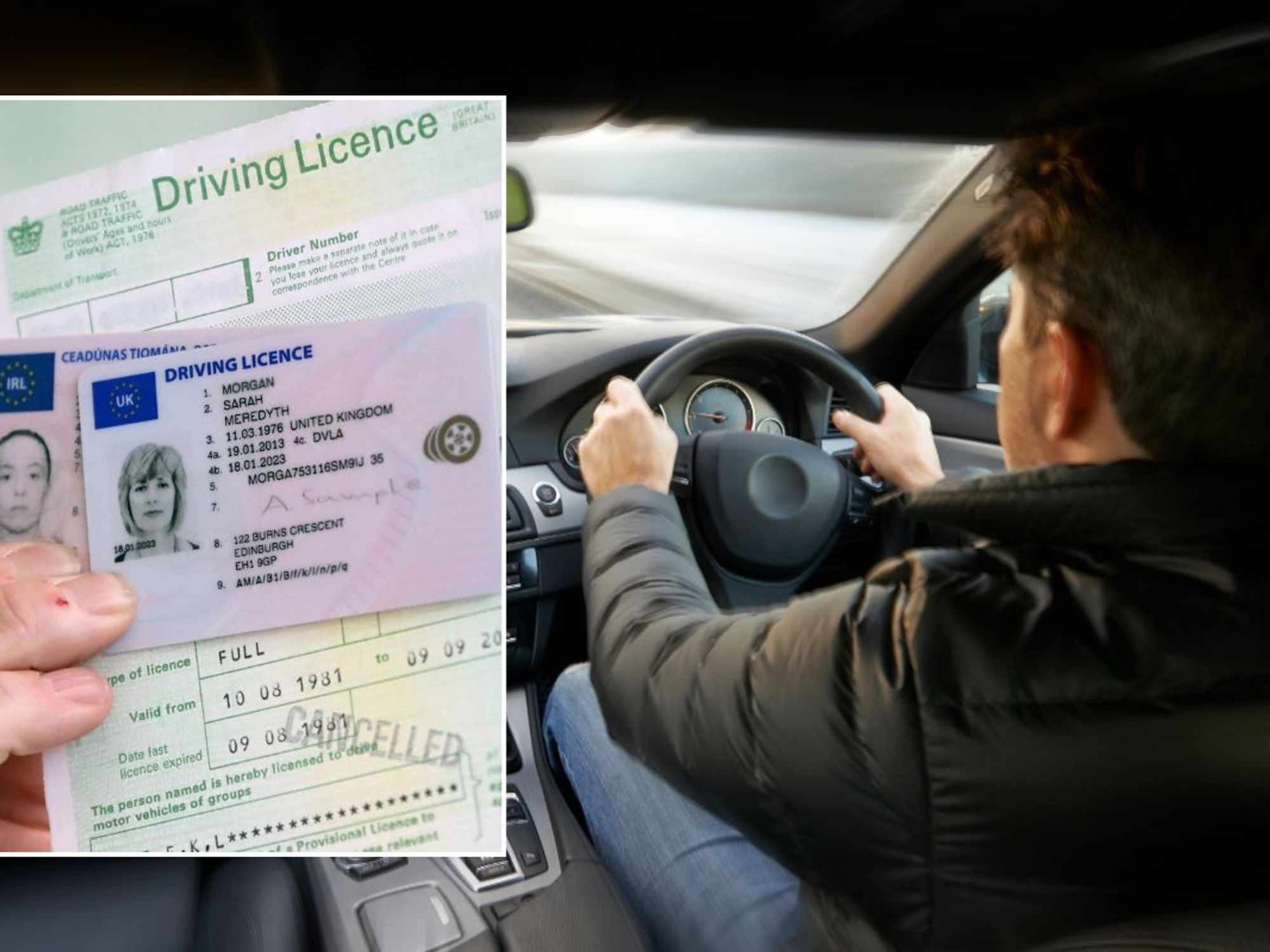One expert told GB News that dash cams are making UK roads safer
GETTY
Bryn Brooker, head of road safety at Nextbase, spoke to GB News about how dash cams are helping all road users to remain safe
Don't Miss
Most Read
Trending on GB News
How often have you seen something on the roads that shocked you enough to say under your breath: ‘That person shouldn’t be on the roads’?
Chances are it’s happened quite a few times. But how often have you had the time or presence of mind to report that driver to the police?
We created the National Dash Cam Safety Portal to fix this problem in 2018. We knew that a huge number of drivers had dash cams affixed to their windscreen or had footage on phones recorded by their passengers.
But getting that footage to police was massively cumbersome - some forces required the public to burn DVDs of the footage to submit it.
Do you have a story you'd like to share? Get in touch by emailingmotoring@gbnews.uk

Dash cams can help motorists slash their car insurance costs
GETTYThe portal allows you to easily and securely submit footage of dangerous driving to the relevant police force in England and Wales.
To be clear - this isn’t for minor transgressions like someone failing to indicate for long enough or following you a bit closely.
It’s for properly dangerous driving - and to make sure of that we make sure that everyone submitting footage knows that it could end up in court, requiring them to appear as a witness.
Despite this restriction, tens of thousands of submissions have come in. Recent data from our partner Egress reveals that the first half of 2024 saw over 24,000 reports of dangerous driving submitted to police forces across England and Wales through the portal.
This represents a significant 31 per cent increase compared to the previous year, underscoring the growing reliance on dash cams as a means of improving road safety.
Since it was created more than 135,000 motoring offences have been reported via dash cam footage, leading to tangible consequences for dangerous drivers.
These submissions aren’t just being ignored either. Our research suggests around 70 per cent of those submissions result in some kind of further action - from a warning letter to the driver all the way through to prosecution.
Conservatively, we estimate it has saved police forces about 123 years of police time. In other words, we’re helping police spend far less time doing paperwork and giving them back time to do policing.
In these times of stretched budgets getting that time back to police is incredibly crucial.
This surge in dash cam usage is not merely a passing trend. A recent survey Nextbase conducted found that 70 per cent of UK drivers believe that all cars should be equipped with a dash cam.
This surge in public support reflects a broader recognition of the role that dash cams can play in enhancing road safety. A dash cam is no longer just a gadget; it’s becoming a vital tool in the fight against reckless driving.
And dash cams are proving to be valuable even when the vehicle is stationary. With vehicle thefts rising to over 100,000 in the year leading up to June 2023, and the charge rates for these crimes continuing to fall, more Brits are turning to dash cams as a way to protect their vehicles and gather evidence in the event of theft.
LATEST DEVELOPMENTS:

More than 100,000 pieces of footage have been uploaded to the national database
GETTYIn high-crime areas, the presence of a dash cam can be enough to dissuade potential thieves, and in the unfortunate event of a theft, the footage (which is often backed up online) can be crucial in identifying the culprits.
The future of road safety lies in technology, and dash cams are leading the charge.
Bryn Brooker, head of road safety at Nextbase







